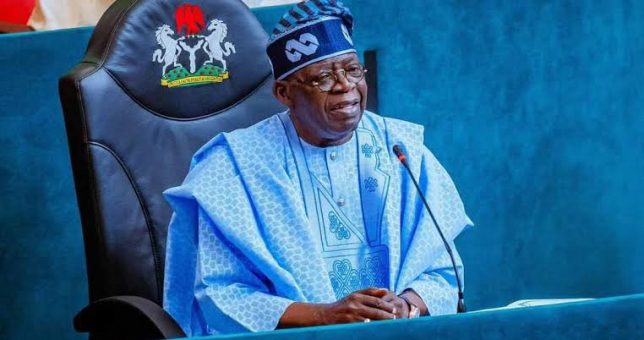President Bola Tinubu has been urged to treat the 2025 capital budget as a national emergency by the Coalition for Equitable Development and Fiscal Justice, or CEDFJ, a civic accountability organization. The group has warned that bureaucratic bottlenecks under the Ministry of Finance are impeding economic recovery and undermining public confidence in advance of the 2027 elections.
The group said that the nation’s fiscal management, which is overseen by Finance Minister Wale Edun, “has become a serious drag on the President’s reform agenda” in a statement signed on Monday by its President, Dr. Gbenga Akinbowale, and its national secretary, Gloria Maduegbuna. The group accused the ministry of failing to convert policy intent into observable results.
The President’s economic structure now has the Ministry of Finance as its weakest point. The statement states, “The President has demonstrated bravery in reforming foreign exchange policy, oil subsidies, and national planning, but his finance team continues to stifle these reforms with slow execution, delayed capital releases, and bureaucratic aloofness.”
The group claimed that Nigeria’s fiscal system “has become trapped in a cycle of excuses and inefficiency” and that the administration runs the risk of losing public support at a crucial political juncture if immediate action is not made to reform the budget implementation process.
The capital budget for 2025 must now be viewed by the president as a national emergency. Every year, the same bureaucratic cycle is repeated; money is granted after the deadline, projects stop in the middle, and appropriations lose all of their value due to inflation. The statement went on, “This cannot continue under a government that came to power pledging a break from the past.
As the 2027 election cycle approaches, CEDFJ cautioned that the present rate of fiscal performance “is not politically sustainable,” emphasizing that capital finance delays will lessen the impact of Tinubu’s reforms.
Every unfinished hospital, electricity installation, or road project that has halted serves as a reminder that people are still awaiting the Renewed Hope that was promised to them. No amount of political rhetoric will be able to make up for subpar performance if these expectations are not fulfilled.
According to Akinbowale, the coalition’s analysis of previous budgets revealed that the majority of MDAs used less than 70% of capital allocations between 2021 and 2024. If this trend continues, it might seriously impair important infrastructure projects in 2025.
Repeating the same bureaucratic procedures that have been ineffective for years is no longer a strategic way to solve the same issue. In order to facilitate progress rather than serve as a gatekeeper of lethargy, the Ministry of Finance must be overhauled. This process needs to be personally overseen by the President.
He asked Tinubu to demand quarterly performance reports from the Accountant-General’s office and the finance ministry, as well as to create a direct presidential monitoring system for capital releases.
The Renewed Hope Agenda’s legitimacy is based on how diligently it is carried out rather than how carefully the budget is formulated. The organization cautioned, “We risk undermining the very hope that brought this government to power if 2025 turns into yet another year of excuses.”

